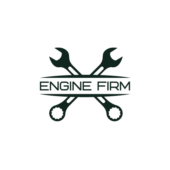New Engineering Technology
Engineers are constantly exploring novel solutions to age-old challenges, harnessing the power of emerging technologies to propel their projects to new heights. As the world embraces the era of digital transformation, the integration of new engineering technology is reshaping the way we approach complex problems. By embracing these advancements, engineers can unlock a world of opportunities and drive progress in ways previously unimaginable.
Engineering is witnessing a rapid evolution with emerging trends pushing the boundaries of what is possible. Here, we delve into some of the latest advancements shaping the future of engineering.
The blend of Artificial Intelligence (AI) and Robotics is revolutionizing the engineering landscape. It’s reshaping manufacturing processes, enabling predictive maintenance in industries, and enhancing automation efficiency. AI-driven robots are being designed to learn from their environment, adapt to new situations, and perform tasks with precision, leading to increased productivity and reduced operational costs. Engineering teams can use an AI presentation maker to simplify technical innovations and present them to stakeholders effectively.
The focus on Sustainable Energy Technology is driving engineering innovations towards environmentally friendly solutions. From solar panels to wind turbines, advancements aim to harness renewable energy sources efficiently. Engineers are creating sustainable energy systems that reduce carbon footprints and promote a greener future. The integration of smart grids and energy storage solutions is optimizing energy distribution and management, contributing to a more sustainable and eco-conscious society.
Impact of New Engineering Technology on Industries
New engineering technology is revolutionizing industries across the board. Let’s delve into how these advancements are reshaping the landscape.
In the realm of manufacturing, new engineering technologies are streamlining production processes, enhancing product quality, and optimizing resource utilization. Technologies such as AI and Robotics are being integrated to automate tasks, improve accuracy, and increase efficiency. This transformation is leading to leaner manufacturing processes, reduced lead times, and ultimately, cost savings for companies.
The healthcare sector is witnessing a significant revolution through the adoption of new engineering technologies. From precision medicine to wearable devices and telemedicine, engineering innovations are enhancing patient care, diagnosis accuracy, and treatment effectiveness. Advancements in medical imaging, data analysis, and remote monitoring are empowering healthcare professionals to deliver personalized and efficient services, ultimately improving patient outcomes and transforming the way healthcare is delivered.
Challenges and Solutions in Implementing New Technology
In the realm of engineering, the adoption of new technology comes with its own set of challenges, yet innovative solutions pave the way for successful implementation.
When incorporating new engineering technology, one common hurdle is the need for up-to-date skills. Engineers must continuously upskill themselves to adapt to the ever-evolving technological landscape. Additionally, compatibility issues with existing systems can pose a significant obstacle. Ensuring seamless integration with current infrastructure is crucial for a smooth implementation process. Moreover, the cost of implementing new technology can be prohibitive for some organizations. Finding cost-effective solutions without compromising quality is imperative in overcoming this financial barrier.
Regulatory compliance and safety standards are paramount when introducing new technology in engineering. Meeting stringent regulations is essential to prevent legal ramifications and guarantee ethical practices. Moreover, ensuring the safety of personnel and the environment is non-negotiable. Implementing comprehensive safety protocols and conducting thorough risk assessments are vital steps in addressing safety concerns effectively. Collaboration with regulatory bodies and stakeholders is key to navigating the intricate regulatory landscape and ensuring adherence to industry standards.
In a rapidly evolving technological landscape, engineers play a pivotal role in shaping the future. By embracing cutting-edge technologies like AI, Robotics, and precision medicine, industries are witnessing unprecedented advancements in efficiency and quality. As we move towards a digital transformation era, the integration of AI and Machine Learning, sustainable practices, smart infrastructure, additive manufacturing, and cybersecurity will drive innovation and progress. The challenges of upskilling engineers and ensuring regulatory compliance are being met with strategic solutions. The forecasted trends indicate a promising future for engineering, where efficiency, sustainability, and technological advancement will continue to be at the forefront of industry evolution.

